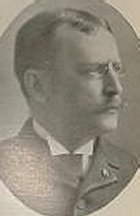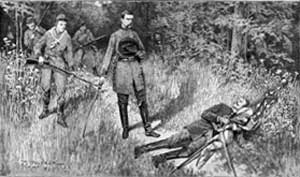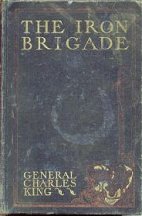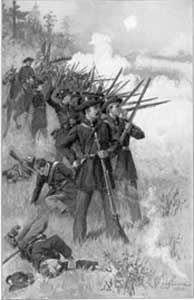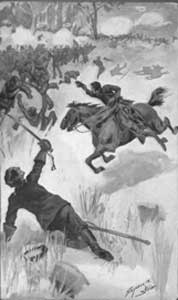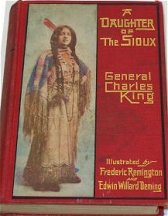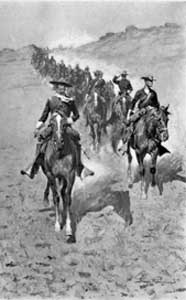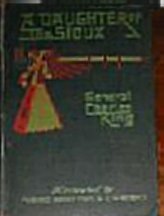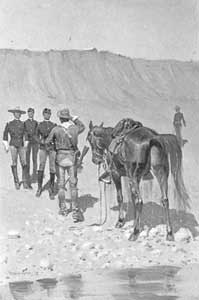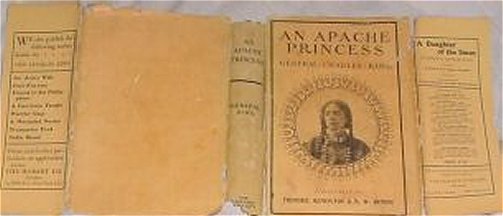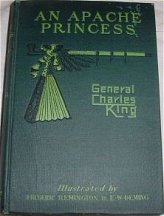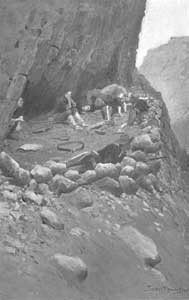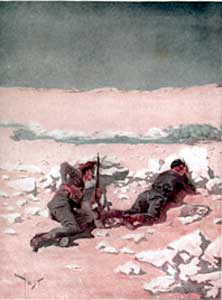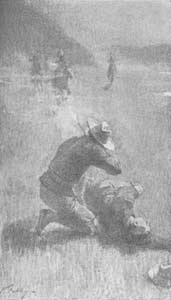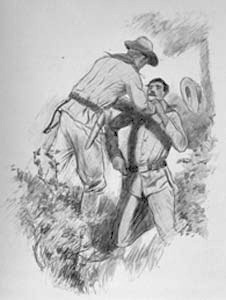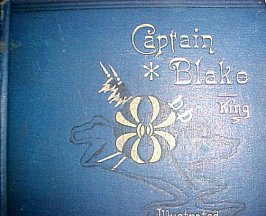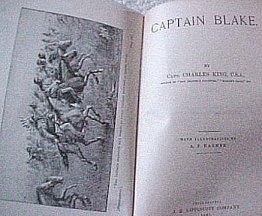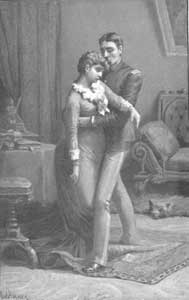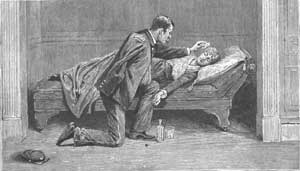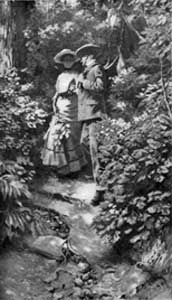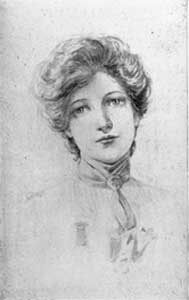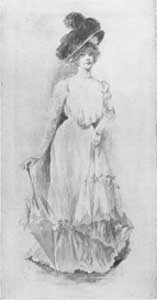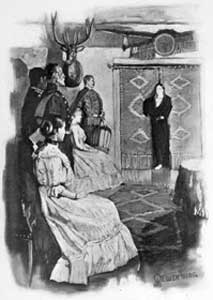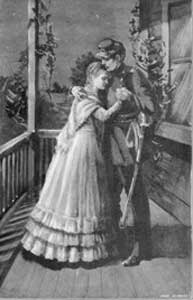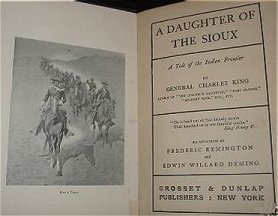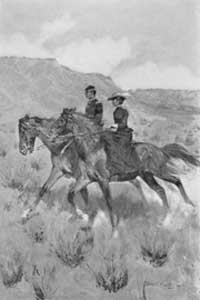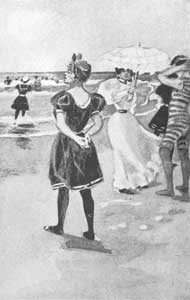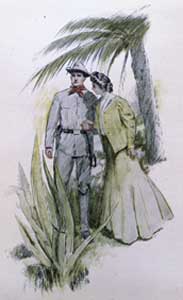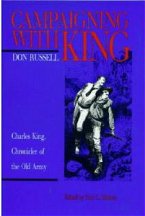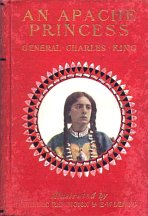MICHIGAN MILITARY ACADEMY
by
General Charles King
Detroit Free Press ~ July 14, 1901
Reprinted in MMA: Them Was The Days
In the heart of the beautiful lake country lying to the northwest of
Detroit is the seat of the military academy of the Wolverine state. It
is unique in that, of the many military schools through the northland,
it alone has the recognition of the executive and legislature of the commonwealth,
is naturally subjected to an overhauling of a board of visitors similar
to that of West Point, an its graduates by law are entitled to the rank
of brevet second lieutenant in the organized state troops. It is remarkable,
however, in that it is the creation and completion , almost unaided, of
one man, its projector in the early seventies, its head and from its fertile
birth to the burly strength and solidarity of today, its honored superintendent
for a quarter of a century -- colonel J. Sumner Rogers.
Its story reads almost like a romance. In 1871, when the army was "telescoped"
into half of its proportions, an promotion blocked for a decade or more,
dozens of young officers, who had fought valiantly throughout the great
war, found themselves compelled to choose between being subaltern for half
a lifetime or lamenting out into the world army. Of these was a young lieutenant
of infantry, whose gallantry in the volunteers and whose almost desperate
wounds had won him the faith and favor of soldiers such as Sherman, Schofield
and Upton. The regiment happened to be stationed at Detroit when
"consolidated" with one of the veteran reserves. He had employed leisure
hours drilling the cadet corps of the city, had inspired them with solider
enthusiasm and acquired among them such an influence for good that, .little
by little, he was enabled to instill the principles of integrity, honor
and manhood that rules his own life. It was good, indeed, that erect carriage
and habits of promptness and subordination should result from his teachings,
but when to these are added a regard for truth and temperance and a respect
for authority , many a lad had been transformed and many a parent began
to ask, "What manner of soldier is this, that brings about such a change
among our boys?" There are those that believe to-day that the foundation
stone of Michigan's military academy, was laid in the old "Pelouze Cadets."
Certain it is that more than one father in his gratitude, that urged
Lieutenant Rogers to quit the humdrum of garrison life, in the army and
continue the good work. ONe thing led to another. Rogers himself had kept
his eyes open and discovered this most ideal spot on the bowered shores
of Orchard Lake, and here in 1877, was born the Military Academy which
today is rightfully the pride of the state.
It was no easy path to victory. There was standing at first only the
picturesque castle. Men and money had to be won, even though pupils were
promised by the dozen. Both came slowly at first. Except in Detroit, Rogers
was but little known. Men whom he sought to interest in this project had
the civilian's distrust of the soldier except as a fighter. That he could
be an educator was a theory unheard of. For quite a time only from
Detroit and its environs, could he obtain pupils but his hope and faith
and purpose never flagged. He set his heart upon having a soldier-school
that would be second only to West Point, and earnestly , prayerfully, steadfastly
held to his purpose, each year, despite many a buffet, gaining some new
point.
It would be impossible in the limits of this sketch to tell the obstacles
that fell in his way -- some vexations, some almost absurd. A pet theory
on the part of many despairing parents was that a military school was a
genteel edition of the state reform establishment, a place to send incorrigible
boys, and time and again, there came appeals for the admission of such.
When it was found, however, that the superintendent was inflexible on this
point, many were the devises used to circumvent him, and so it sometimes
happened that there came to the Academy, after its fame had spread far
beyond the confines of Michigan, young reprobates, armed with certificates
of moral character unimpeachable at first sight, but one drops fabrication
in the light of later events.
From start to finish, so long as Rogers holds the reins, there can b
e but one rule at Orchard Lake. Cadets are not only required to abstain
from all vicious, immoral and irregular conduct, but it is enjoined upon
them to conduct themselves upon every occasion with propriety and decorum
which characterize the society of gentlemen.
It was a feather in the cap of the young superintendent when the
legislature, after some years watching his faithful and persistent work,
decided that Michigan had a remarkably good thing in the academy, and thereupon
passed the laws that gave him the state rank of colonel and his staff officers
that of majors. Then General Sherman became actively interested and wrote
words of praise and advice that are cherished at this school to this day.
"Make it as like West Point as possible," said he, and that, too, has become
the colonel's aim. As long ago as the early '80s, the uniform always
gray, was changed in the cut and finish to conform to that of the great
national school. In drill, and in methods of discipline, despite the fact
that Rogers is not a West-Pointer., he has permitted no other standard,
and it was a question asked many a time and oft during the great world's
fair at Chicago, where camped the two battalions, so closely alike in uniform,
and so exactly alike in precision and snap and style of drill. "Well, which
is Michigan and which is West Point?"
The fact of the matter is that long since as Orchard Lake ceased to
depend upon Michigan for its undergraduates. It draws on the entire country
now, with the occasional appearance of swarthy young faces from the
Latin republics of South America. From the Kennebunk to the Columbia, "the
boys," as they love to call themselves, gather under the tall, white flag
staff in the quadrangle, where in '77, all was brushwood. What a change
to-day! The stately academic building on the southward side, the fine gymnasium
at the east, faced by the severely military facade of the barracks -- all
heated by steam, all lighted by electricity and gas. When first I came
to see the corps, so rapidly becoming famous for their drill and discipline,
they studied, slept and recited in one queer old rookery, where the quartermaster's
building and mess hall, then either and now, "modeled after West Point,"
both in point of cuisine and construction, the mess commons of the Michigan
Military Academy needs only the portraits of honored graduates to make
it a second "Great Hall."
All because of its youth are most of its graduates yet to be heard
from, but their day is coming and some few, thanks ot the opportunities
of the Spanish war, have come out already with "flying colors." The records
show that thirty-five were commissioned in the regulars or volunteers,
and that, including these, Orchard Lake could lay claim to seven majors,
fifteen captains, and twenty-five lieutenants serving their country during
that brief, but stirring episode. How many more enlisted we cannot tell.
HOw many sought service and were unable to obtain commission or appointment
is another matter whereof the records are silent, but it is in the power
of the writer to testify that in April and May, 1898, no less than fourteen
letters came to him within a few days -- all from Orchard Lake boys who
were graduated long about '92 or '92, imploring him for places on his staff,
which was beyond his power to give.
Then too, away in the Philippines, who should turn up, a trooper in
the Fourth Cavalry, then temporarily under the writer's command, but one
of the blithest, merriest spirits that ever wore the cadet gray and the
"Tuebor" shield of Michigan. "I could not help it," said he. "I served
as first sergeant in the illinois Volunteer Cavalry, till they were mustered
out, and then, triumph on the tented field. It has the advantage at the
start of West Pointers to conduct all matters of drill and minor discipline.
Some of them were famous instructors, and when it happened that any great
competitive drill was on, there was consternation along the entries when
it was learned that Rogers' boys were to be on hand. Who that saw it can
ever forget the scene on the beautiful White House lot at the foot of the
Washington Monument when in the presence of twenty thousand spectators,
mainly soldiers, their picked company swept the field of all antagonists
after a spirited and well nigh faultless drill of forty minutes -- pronounced
by the board of judges all offers of the regular army, by long odds the
best drilled company on the grournd! The finest companies, east west, and
south, cadet and national guard, took part in that memorable contest.
Then at Chicago in '92 with almost faultless precision, they gave before
General Miles an exhibition of the newly devised school of the battalion,
which, by he way, they had finished the day before it was taken up at West
Point.
On occasions such as these, it was a joy t see the colonel, their
proud father and superintendent. Boyhood seemed to have come again, such
was the ecstasy with which he watched their triumph. It was on such occasions,
too, that his pupils fairly realized how deeply his heart was wrapped up
in them. In the monotonous routine of barrack life, with all its stringent
regulations, they sometimes saw only the firmer, sterner side of his character,
for discipline had to be maintained. They little dreamed, many of them,
what hours of thought and care and study he gave to their welfare. About
the cheer fireside, in his own happy home circle at "the castle," there
was never a topic that so promptly enlisted the sympathy of every heart
as "the boys." Both his sons have worn the gray and won their chevrons
in the famous little battalion -- the elder, before his appointment in
the regular army, having long and admirably served on the staff of the
school. Rogers may have had occasional desire to travel and see the world,
but could never be, prevailed upon, in all the long years from '77 to the
present to leave his beloved academy. It was his child, his life-work,
and now, that failing health demands at leas a few months of rest and change,
well may his friends point to the result of his faithful labor and claim
for it that; no matter what the future may have in store in the building
of his soldier school he has nobly served the nation and the state, and
, in days to come, when he and his generations shall have been gathered
to their fathers, there need be no other monument for him who founded,
fostered and brought to full completion the Michigan Military Academy ad
Orchard Lake.
Reference:
Edgar Rice Burroughs and the History of the Michigan Military Academy:
Them Was The Days
by Brian Bohnett 2001
CONTACT: Mad Kings Publishing ~ 1909 Chestnut Street ~ Holt, Michigan
48842 USA
